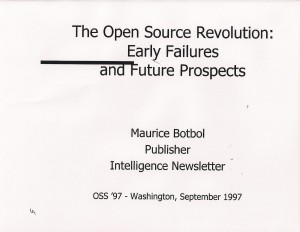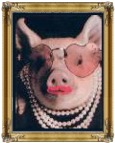
History of Bureaucratic War on Public Intelligence (1992-2006)
History

Very frew “all-source” intelligence analysts in the US secret world impress us, in part because they will never actually be “all-source” until we get a grip on Open Source Intelligence (OSINT); in part because the secret world refuses to engage with 95% of the real-world and therefore will always lack of the historical and cultural perspectives that only multinatational information-sharing and sense-making networks can provide; and in part because half of them are very young and right out of school, with rotten tools, 1950's management chains and editing practices, and “no way out.”
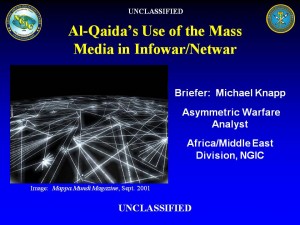
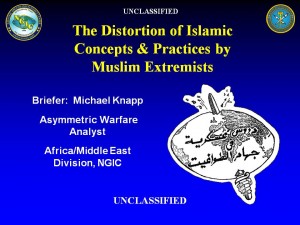
On this page are three briefings from an individual that is the exception to the rule. This individual represents all that a perfect analyst should be, to include a non-negotiable demand for access to all relevant information in any languaage and any medium. This analyst gives force to the adage that one analyst with a brain is worth a thousand “analyst” bodies who only know how to cut and paste what they are spoon-fed by badly managed classified collection systems with no strategic perspective.
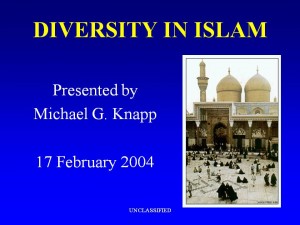
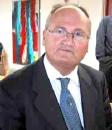
Along with Colin Gray, Steve Metz, and Max Manwaring, Martin van Creveld is among the intellectual giants of our era with respect to strategic reflection, and he stands alone at the intersection of strategy, logistics, technology, command & control, and the art of decision-making under conditions of great uncertainty.
His contribution to OSS '02 was created especially for this multinational group, and we believe it will stand the test of time as a seminal work for those who seek to transform intelligence from a bureaucracy that measures inputs to a cosmic force that determines outcomes favorable to all concerned.
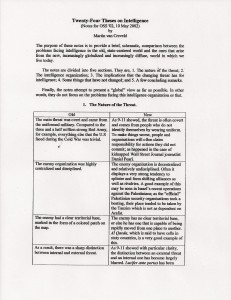
Fritz Ermarth worked for the Central Intelligence Agency from 1973 until 1998 serving as Chairman of the National Intelligence Council, as National Intelligence Officer for the USSR and East Europe and Director of the Strategic Evaluation Center. He has received both the Distinguished Intelligence Medal and the National Intelligence Distinguished Service Medal. Ermarth also served as Special Assistant to the President during the Ronald Reagan‘s presidency, as well as Senior Director of Soviet and European Affairs.
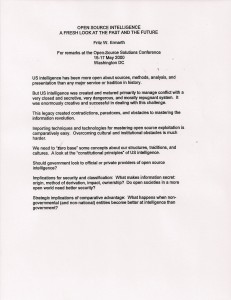
Maurice Botbol was among the first professional observers to notice the conflict between the secret intelligence world's view of open sources as “Open Sores,” and the competing view of open sources as both complementary and often sufficient. Below is his presentation to OSS '97. His most trenchant observations are regretably not included in the document. Click on his photo to reach his publishing company.
